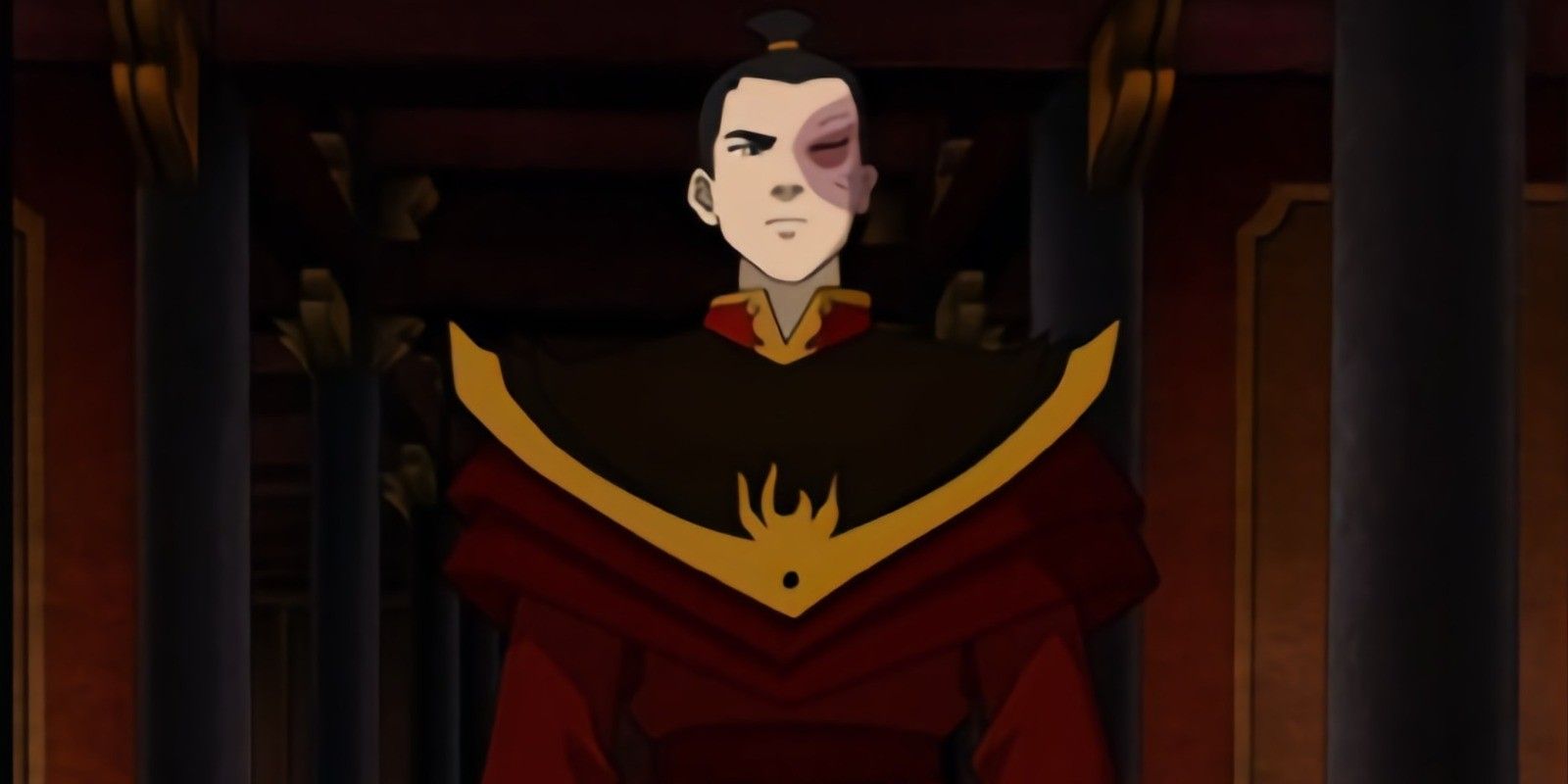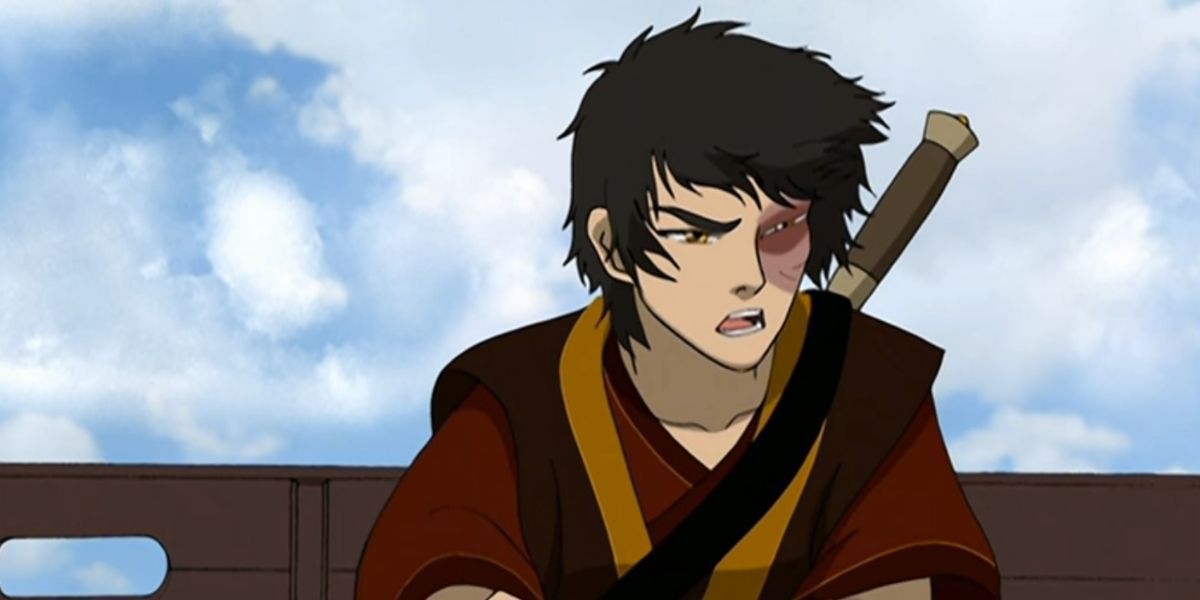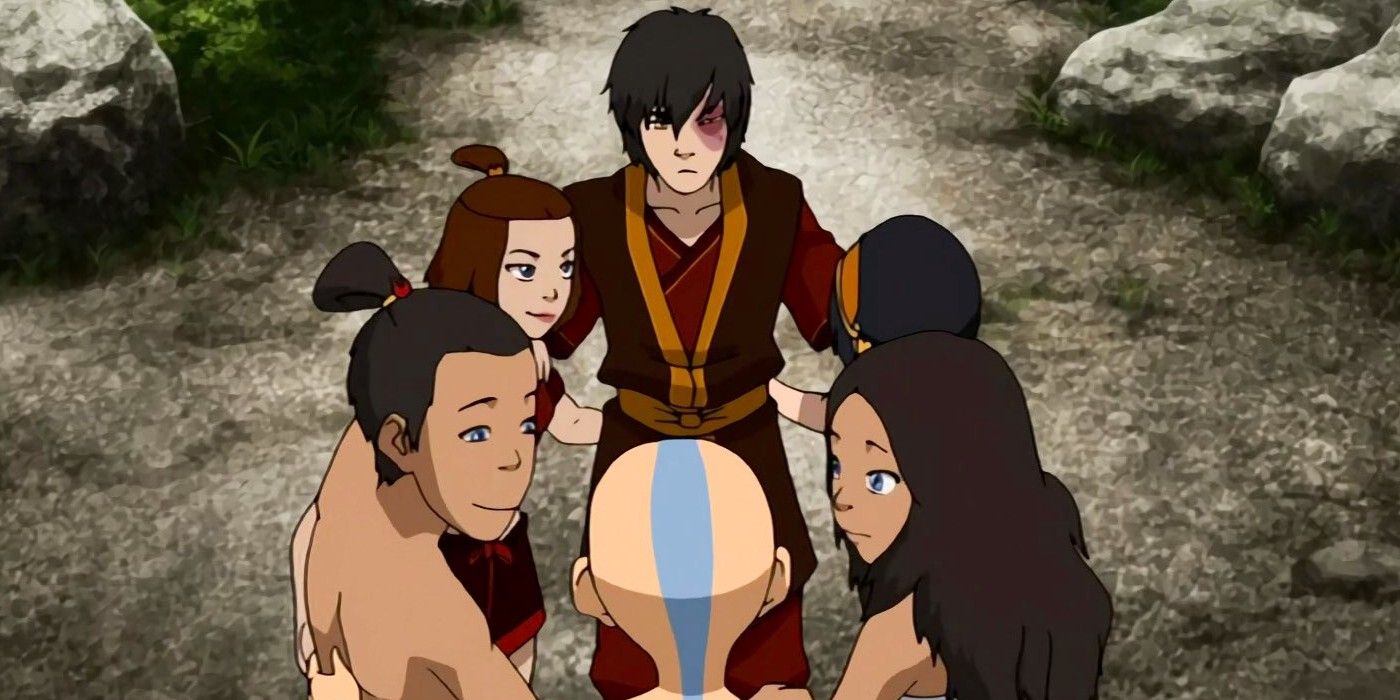The redemption arc is one of the most common tropes in entertainment. At this point, it’s become something fans expect – if a villain is introduced, there’s a fair chance that villain will be redeemed at some point. Few properties, however, have managed to write as effective a redemption arc as Avatar: The Last Airbender did for Zuko.
It’s all in the setup when it comes to Zuko. Though the first season of Avatar: The Last Airbender introduces Zuko as one of the main antagonists, the show never truly presents Zuko as the ultimate antagonist. If anything, he always feels like the temporary villain on the way to the “big bad.” This perception is proven false by the fact that Zuko, ultimately, sticks around for the entirety of the show’s run. But the seeds of the character’s redemption are planted in both the framing and the time the show takes to develop his character.
As Team Avatar forms, Zuko is presented by the storytelling as the other side of the coin, the one trying to foil them at every turn. That, more than anything, makes Zuko the “villain” of the first few seasons. And yet, Zuko proves to be, at every turn, an ineffective villain at best. He’s never truly committed to villainous acts, his only north to capture the Avatar, not for glory, or even a desire to stop him from reaching his full potential, but because if he does, he can finally go home.
For a while, this desire remains unexplained, as Zuko pursues Team Avatar and Uncle Iroh finds ways to waste time. But the depth this suggestion gives the character allows fans to give him more of the benefit of the doubt as they follow both sides of the adventure. Soon, fans are presented with the full story. Fire Lord Sozin – Zuko’s father, and the true villain of Avatar: The Last Airbender – sent his teenage son on a fool’s quest at a very young age, after Zuko failed to live up to his impossible ideals. Capture the Avatar, who hadn’t been seen for one hundred years, or never come home again.
The setup for Zuko’s reasoning, and the fact that the show doesn’t lead with it or follow just a linear path, instead allowing Zuko to grow, learn, mess up and try again, means that by the time viewers fully understand the depth of his pain, it’s hard to not be on his side, one way or another. But even with how well the show carries the storyline up to the point where the viewers finally understand Zuko, it’s what the show does after that truly sets his redemption arc apart. Because a “villain” must not only be redeemed in the eyes of the viewers. If his redemption is going to work, he must be redeemed in the eyes of the other characters.
For Zuko, that doesn’t just mean changing course, it means admitting his mistakes. It means apologizing. And it means working hard at making amends with every member of the team. It isn’t an easy thing, and the show doesn’t present it as such. Relationships aren’t repaired in an instant. But they are repaired, by time and consistent, committed attempts on Zuko’s part.
Perhaps as important as that, Zuko’s reasoning for turning his back on everything he grew up believing, everything he thought he wanted, isn’t about someone else. It’s about his own growth, and his own realization, not just about the person his father is, but about the person Zuko wants to be. Zuko doesn’t fall in love and suddenly decides he wants to be a good person. Zuko doesn’t lose his Uncle and realize that he must become the man his Uncle wants him to be. No, Zuko finally understands who Zuko wants to be, and decides to work towards that.
This means that when he finally approaches Team Avatar, wins over Aang, and starts teaching him Firebending, the overwhelming sense is that things are finally coming together the way they should have. The same applies to Zuko helping Sokka rescue his father from the Boiling Rock, and later helping Katara find the Fire Nation soldier responsible for killing her mother. Yes, those are all things Zuko does to be liked. But they’re also things Zuko does because he knows they’re right. And that’s part of what sets his redemption arc apart.
In the end, it could be said that Zuko wins, though perhaps the better reading is that Team Avatar wins, and by the end of the show, Zuko is as much part of Team Avatar as the rest of them. But the truth is that Zuko’s entire storyline – and his redemption arc – are set up in a way that makes fans feel like they won. They got the happy ending, and they got to go on a journey of forgiveness, of growth and of friendship winning above everything. There aren’t many redemption journeys like that in entertainment. That might not be the only thing that makes Avatar: The Last Airbender worth a watch, but it’s certainly high on the list.



